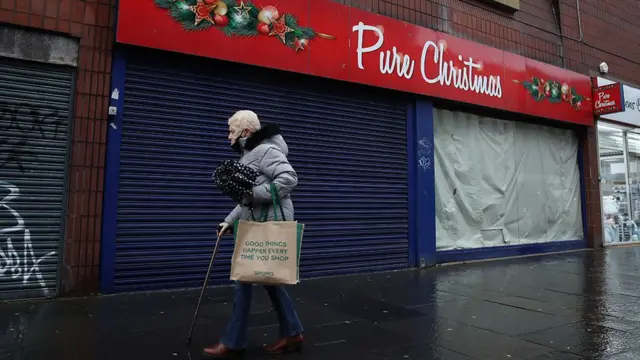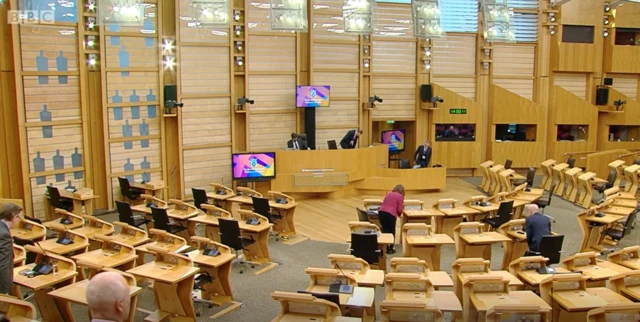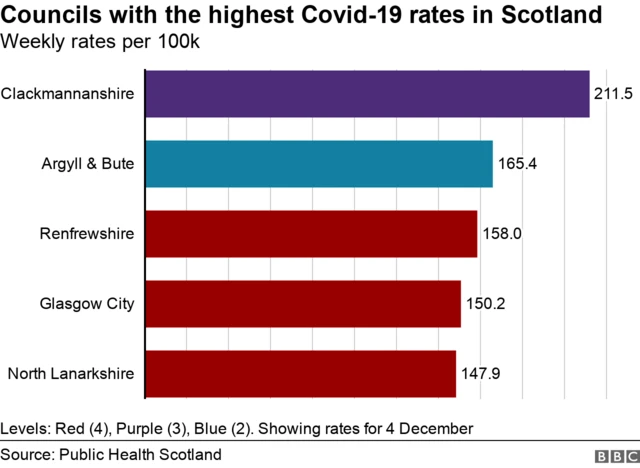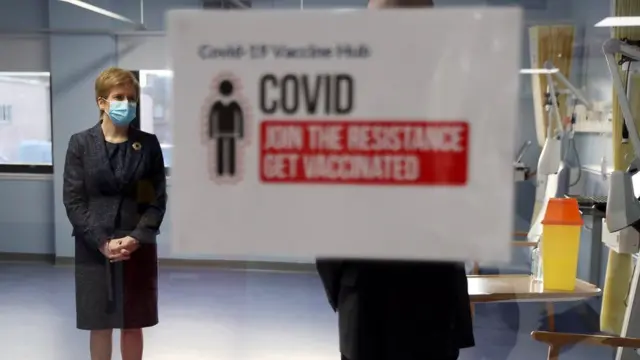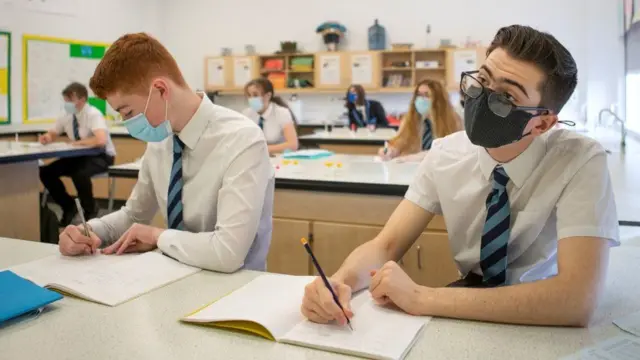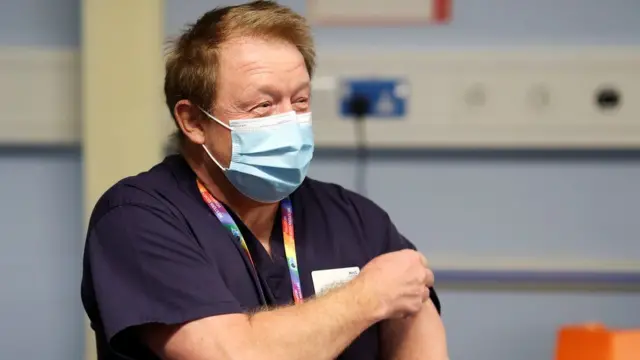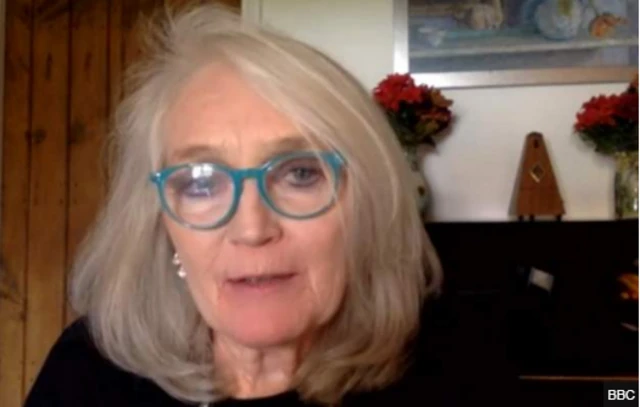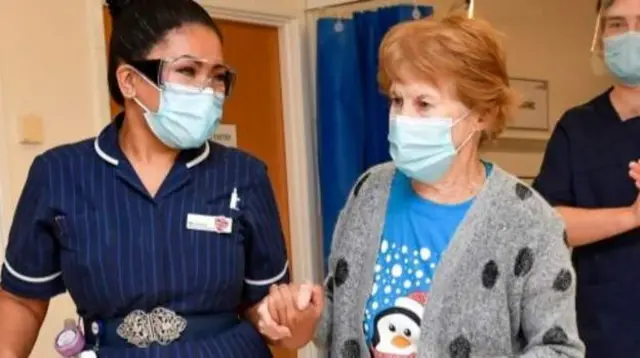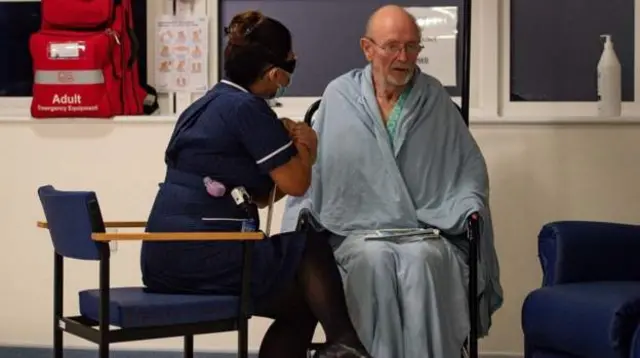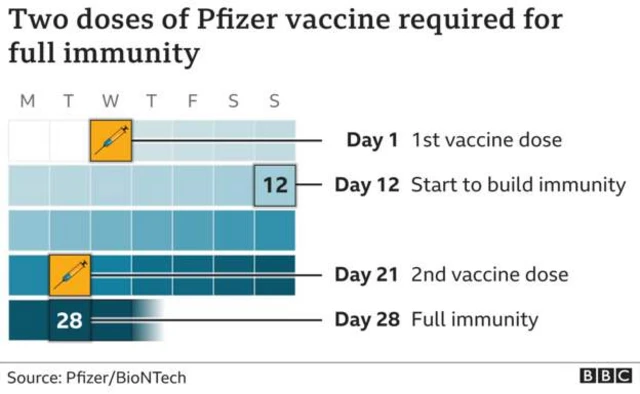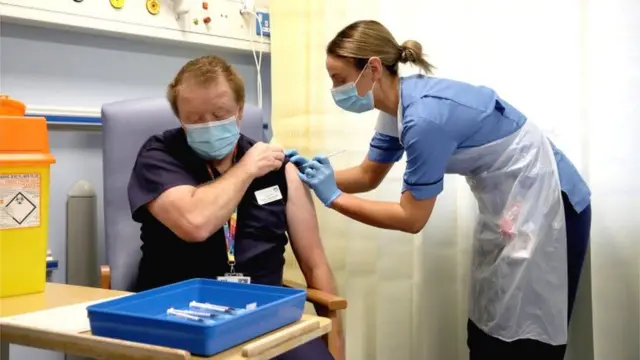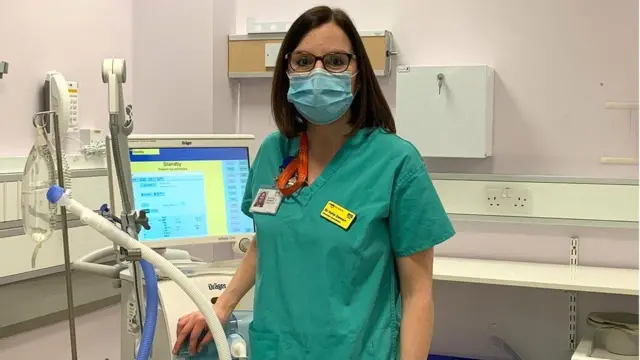Covid in Scotland: The headlinespublished at 14:18 GMT 8 December 2020
- A review of Scotland's Covid-19 levels system will be announced shortly
- It's already known that 11 Scottish council areas which are currently subject to the highest tier of Covid-19 restrictions will exit level four on Friday - but it's not known which level they'll go down to
- Nicola Sturgeon will also announce whether any other council areas will move up or down a level
- Margaret Keenan, a 90-year-old grandmother, was the first person in the UK to be given the new Covid vaccine
- In Scotland the the first vaccinations have taken place in Edinburgh
Coronavirus: First Pfizer vaccine given to 90-year-old woman
- An announcement is also expected later this afternoon about next year's Highers and Advanced Higher exams
- Education Secretary John Swinney is due to give an update to Parliament at around 3.50pm, where he will also detail plans for students to return safely after Christmas
- A major incident was declared by health officials in charge of tackling an ongoing outbreak of coronavirus at an Aberdeenshire care home
- However the decision about Inchmarlo Care Home on Monday evening was then stood down when "extra support" was found
